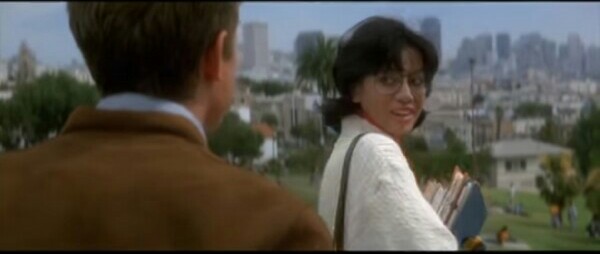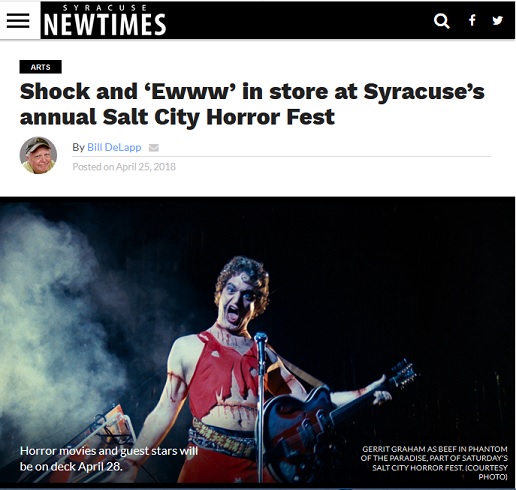DEAN DEVLIN - "I WANTED TO DO A SCARY MOVIE THAT WAS A THROWBACK TO EARLY DE PALMA"

Earlier today, I posted links to reviews of Yann Gonzalez' Knife + Heart, which premiered at Cannes the other day and reminded many critics of the films of Brian De Palma. Two other thrillers were recently released in the United States that brought De Palma to mind of critics-- and, in the case of Bad Samaritan, it seems the director, Dean Devlin, had De Palma in mind from the get-go. "You know, there’s a lot of good scary movies in the last couple of years," Devlin tells Colleen Bement at Nerd Alert News. "They tend to be either something to do with a creature or they have some supernatural aspect to it, or they’re sort of violence porn. I wanted to do a scary movie that was a throwback to early Brian De Palma, or even like the movie Disturbia. This is scary because it could actually happen."
Devlin expands on that a bit more in an interview with Collider's Christina Radish:
When this came your way, it came to you as a spec script that screenwriter Brandon Boyce was asking for advice on, and then you decided you wanted to do it. What was it that made you so passionate about telling this story?DEVLIN: Well, the first thing is that it was a page turner. I couldn’t put the script down, and that’s so rare. Usually, I’m not a great reader. I have to push myself to read through a script. And the other problem I have is that, very often, I’m rewriting a script while I’m reading it, and then I get half-way through it and I realize the movie in my head is totally different from the one I’m reading, so I’ve gotta start over again. This one was absolutely compelling, from the first page to the last. I just couldn’t put it down. It also reminded me of early Brian De Palma movies that I fell in love with, like Dressed to Kill, and things like that. There are a lot of great scary movies in the last couple of years, but they tend to be either supernatural or have a science fiction aspect, or creatures, or aliens. To me, the most horrifying and frightening thing in the world are other people. If you had a psychotic person, who had no ability to feel guilt or empathy, and you married that with someone who had all of the resources and money in the world, that’s a very terrifying idea, but not so unrealistic that you couldn’t run into that, in real life. That’s what chilled me.
Here's an excerpt from a review of the film by The Daily Herald's Dann Gire:
What Alfred Hitchcock (or his disciple Brian DePalma) could have done with this cat-and-mouse "Silence of the Lambs"-lite material boggles the brain.Director Dean Devlin, who gave us the ludicrously silly weather disaster drama "Geostorm," can't boggle, but he races over logic lapses with such speed that the frequent surprises, power-shifts and reversals easily take up the credibility slack.
Irish actor [Robert] Sheehan executes his role as an out-of-his-class hero with aplomb, although he's operating in a story that supplies a humongous amount of Oregon scenery for British actor Tennant to chew, and he gorges himself on it with unbridled gusto.
Resembling a cross between Norman Bates and Charlie Sheen on a bender, [David] Tennant tunes into the movie's melodramatic excesses better than his co-stars. (If Tennant wore a mustache, he probably wouldn't twirl it, but we'd see him thinking about it.)
David Connell's impressive, widescreen cinematography keeps our eyeballs occupied with kinetic, well-framed compositions, although Joseph LoDuca's crushing suspense score overpowers a climactic, snow-dusted showdown with distracting notes.
If nothing else, "Bad Samaritan" might be just enough of a horror film to give us pause every time we toss our car keys to a parking attendant.
MARGOT ROBBIE GOES FULL FEMME FATALE IN 'TERMINAL'
Vaughn Stein's Terminal has also led to at least a couple of mentions of Brian De Palma in critics' reviews:
The latest in a long line of post-Tarantino imitations, Terminal paints its setting in broad strokes. The train station where the film's action takes place abounds in retro-modern colors that are redolent of so many 1990s-era industrial music videos. It's a generic space occupied by stilted characters: two hitmen (Dexter Fletcher and Max Irons) who trade wince-inducing banter while waiting for new assignments; a terminally ill teacher (Simon Pegg) who's looking to speed up the shuffling off of his mortal coil; and a disabled janitor (Mike Myers) who just might be more shrewd and observant than he lets on. Interacting with them all is Annie (Margot Robbie), a woman who's introduced via a series of images that, in the way they reduce her to flashing, emerald eyes and pursing ruby lips, lamely prop her up as a femme fatale.In fact, Brian De Palma's Femme Fatale stands out as the closest analog to this film, as Annie is constantly slipping on various disguises as she seduces and double-crosses those who dwell throughout this terminal at the heart of an anonymous city. Yet the comparison to De Palma's freewheeling, deconstructionist take on noir does this lugubrious thriller no favors, as writer-director Vaughn Stein doesn't so much as dust off the cobwebs from the tropes he recycles throughout. Terminal's actors are awkward and stiff in trying to project hard-boiled cool, and all while delivering lines—from “Hello, handsome, dangerous men” to “Hello, beautiful, semi-clad girl”—that sound as if they had been passed multiple times through an online translation tool.
Richard Roeper, Chicago Sun-Times
“There is a place like no other on Earth … to survive it, you need to be as mad as a hatter.” – Margot Robbie’s Annie in “Terminal.”With lines like that, it’s not as if the lurid and highly stylized and neon-noir “Terminal” isn’t announcing itself as a derivative B-movie borrowing elements from pop culture touchstones ranging from old-timey gangster films of the 1940s and 1950s to “Alice’s Adventures in Wonderland” to “Pulp Fiction” to “Sin City” to “Blade Runner” to certain films by Brian De Palma and Guy Ritchie.
This is a dark and bloody and mind-bending trip, alternately fascinating and ridiculous, featuring some bold and outrageous plot twists, and juicy performances from one of the more eclectic casts you’ll see in a film in 2018.
We’re talking Margot Robbie, Simon Pegg, Matthew Lewis from the “Harry Potter” films — and Mike Myers playing one of the sickest sickos in recent memory.
Oh, and one of the aforementioned has a dual role, and let’s just leave it at that.
Every year, we get a handful of movies that have a legit shot at appearing on some “Best of the Year” lists and some “Worst of the Year” lists.
"Terminal" is just that kind of movie.




 Yann Gonzalez' Knife + Heart premiered in competition at Cannes the other day, and brought the films of Brian De Palma to the mind of several critics:
Yann Gonzalez' Knife + Heart premiered in competition at Cannes the other day, and brought the films of Brian De Palma to the mind of several critics: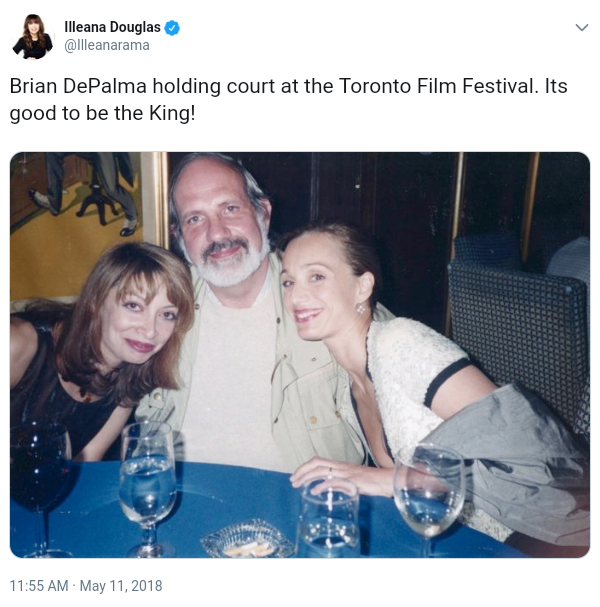
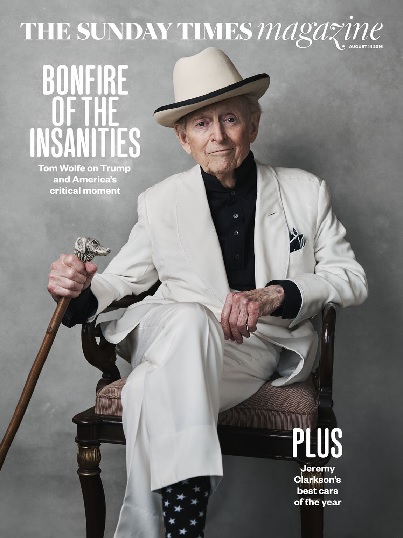 Tom Wolfe, whose "novel of the 1980s", The Bonfire Of The Vanities, was adapted into the film directed by Brian De Palma, died Monday in a hospital in New York. He was 88.
Tom Wolfe, whose "novel of the 1980s", The Bonfire Of The Vanities, was adapted into the film directed by Brian De Palma, died Monday in a hospital in New York. He was 88.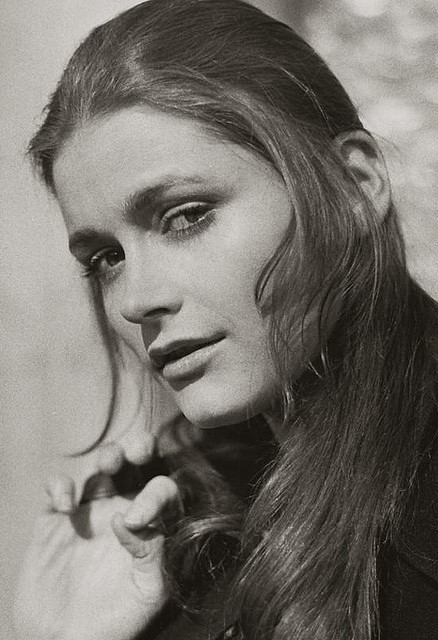
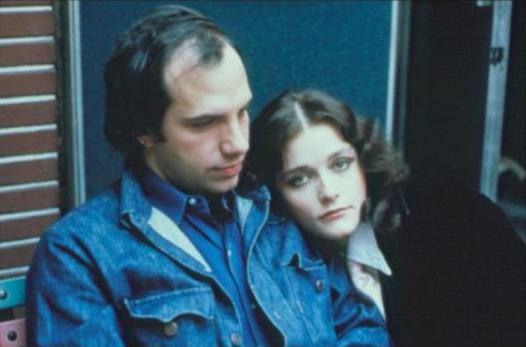
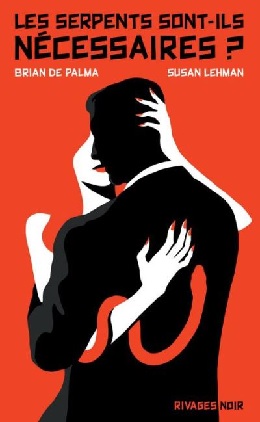 Another book signing is scheduled in Paris for Are Snakes Necessary? Co-authors Brian De Palma and Susan Lehman will be at fnac des Ternes in Paris at 6pm on June 1, 2018, to sign copies of the novel.
Another book signing is scheduled in Paris for Are Snakes Necessary? Co-authors Brian De Palma and Susan Lehman will be at fnac des Ternes in Paris at 6pm on June 1, 2018, to sign copies of the novel. 